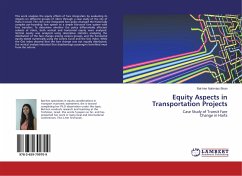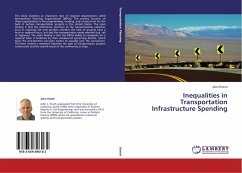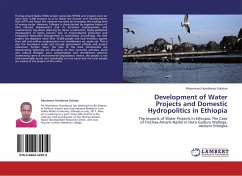This work analyzes the equity effects of fare integration by evaluating its impacts on different groups of riders through a case study of the city of Haifa in Israel. The city's new integrated fare policy changed the historically complex per-boarding fare system to a simple five-zone fare system with free transfers. To determine whether the policy differentially affected subsets of riders, both vertical and horizontal equity were analyzed. Vertical equity was analyzed using descriptive statistics analyzing the distribution of the fare change among various groups, and the horizontal equity tested numerically using the Lorenz Curve and the Gini Index. While the Gini index showed that the fare change was not equally distributed, the vertical analysis indicated that disadvantage passengers benefited most from the reform.
Bitte wählen Sie Ihr Anliegen aus.
Rechnungen
Retourenschein anfordern
Bestellstatus
Storno








